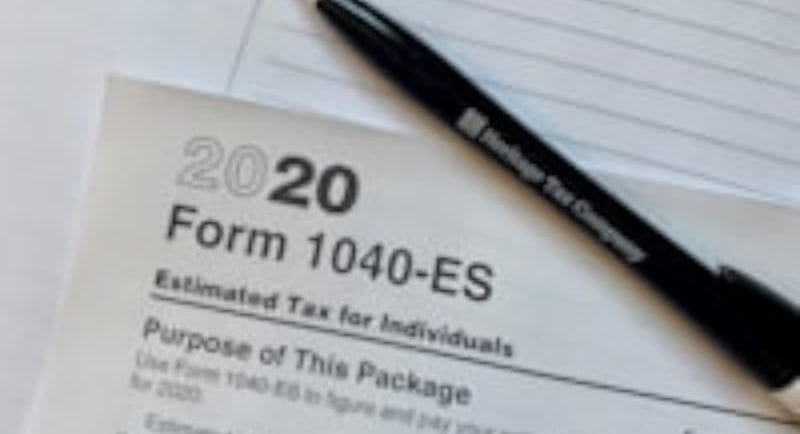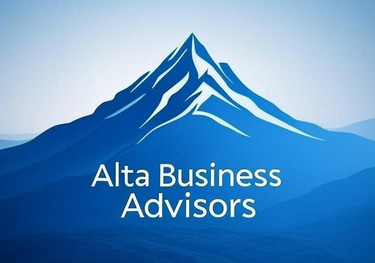Business broker for HVAC, Plumbing & Electrical — Free Calculator | $500 Valuation | Book Call | Call (801) 554-1050
Main Street Due Diligence Checklist (Free Calculator Tool)
This guide dives into main street due diligence, offering small business owners clear, practical steps to evaluate business opportunities. Learn how to thoroughly assess main street businesses, sidestep pitfalls, and make confident investment decisions with a simple checklist tailored for success.
DUE DILIGENCE
RM
7/7/20256 min read


Main Street Due Diligence: Your Guide to Smart Small Business Buys
Thinking of buying a small business on Main Street? This guide will help you check out any business deal. It covers how to look at businesses closely, avoid problems, and make smart choices. We'll use simple words and clear steps to help you understand everything.
Why Look Closely at a Business?
Buying a small business, like a local coffee shop or retail store, can be very rewarding. But it also has risks. That's why due diligence is so important. It means carefully checking every detail of a business before you buy it. This helps you avoid big, costly mistakes.
This guide will show you how to do main street due diligence step-by-step. It's made for small business owners like you. By the end, you'll know how to properly check a business and make a good choice. For a shorter due diligence checklist, explore our due diligence checklist.
What is Main Street Due Diligence?
Due diligence is simply looking into a business very closely before you sign any papers or pay any money. For Main Street businesses—like your local bakery, diner, or barber shop—it means checking their financial records, legal documents, and how they run every day. Think of it like doing a background check on a business to make sure it's a safe place to put your money.
Why does this matter so much? If you don't do your homework, you might buy a business with hidden debts, legal problems, or sales that are dropping. For example, a busy pizza place might look great, but a closer look could show they haven't paid their taxes or their ovens are about to fail. By following a small business due diligence checklist, you protect your money and set yourself up for success.
Why Due Diligence is Key for Small Business Owners
Many Main Street business owners put their life savings into their businesses. One bad choice can lead to big money troubles. Here's why checking a business thoroughly is so important:
Avoid Money Problems: Find hidden debts or claims of income that aren't real.
Know Its Place in the Market: See if the business has loyal customers or if it faces tough competition.
Be Sure It Follows Laws: Check that all licenses, permits, and contracts are correct and up-to-date.
Plan for Growth: Find ways to make the business run better or expand it in the future.
By focusing on main street business valuation (how much a business is worth) and due diligence for small business acquisitions (buying a small business), you can make smart choices that help you reach your goals.
Your Step-by-Step Due Diligence Checklist
Let's go through a practical main street due diligence process made for small business owners. Each step is clear and easy to follow, even if you're new to buying businesses.
Look at the Financial Records
Start with how healthy the business's money situation is. Use our small business financials guide. Ask for these papers:
Profit and Loss Statements: These show the money coming in and going out, and the profits for the last 3 to 5 years.
Balance Sheets: These list what the business owns (assets), what it owes (liabilities), and what the owner has put in.
Tax Returns: Check that the income they claim matches what they reported to the tax office.
Cash Flow Statements: Make sure the business makes enough cash to pay its bills.
Tip: Look for warning signs like income that jumps around or sudden increases in costs. If the numbers don't add up, think about hiring an accountant to look deeper. This step is vital for small business financial due diligence.
Check the Market and Competitors
Knowing the local market is very important. Look into these things:
Customers: Are customers loyal, or do they often go somewhere else?
Competitors: How does this business compare to similar businesses nearby?
Location: Is the Main Street spot easy to see and get to?
Industry Trends: Is this type of business growing (like coffee shops) or shrinking (like video rental stores)?
For example, if you're buying a hardware store, check if a big chain store nearby is taking away customers. Use tools like Google Trends or reports from your local chamber of commerce to do a main street business market analysis.
Review Legal and Paperwork Issues
Legal problems can sink a business. Make sure these are in order:
Licenses and Permits: Are they current and can they be transferred to you?
Contracts: Read agreements with landlords, suppliers, and employees.
Lawsuits: Are there any ongoing lawsuits or disagreements?
Zoning Laws: Does the business location follow local building rules?
A restaurant, for example, needs health permits and licenses to sell alcohol. Missing paperwork can delay your opening or cost you a lot of money. This is a very important part of due diligence for main street business purchases.
Inspect Physical Items
Look at the physical condition of the business:
Equipment: Are machines (like ovens, computers) in good working order?
Inventory: Is the stock fresh and ready to sell, or is it old and useless?
Property: If the business owns its building, check for any big problems with the structure.
For a clothing store, old inventory could mean losses. Hire a professional business appraiser.
Look at How it Runs and Who Works There
How does the business operate day-to-day? Find out:
Processes: Does the business run smoothly, or does it depend too much on the current owner?
Employees: Are the staff well-trained and reliable? Check how often employees leave.
Customer Service: Read online reviews on sites like Yelp or Google to see what customers think.
A coffee shop where staff often quit might mean there are problems with how it's managed. This step is part of small business operational due diligence.
Check the Asking Price
Is the business worth what they're asking? Use these ways to find out:
Similar Sales: Look at how much similar Main Street businesses have sold for recently.
Revenue Multiples: Many small businesses are valued at 1 to 3 times their yearly income.
Asset-Based Valuation: Add up the value of equipment, inventory, and property.
If a flower shop is priced at $200,000 but only makes $50,000 in profit a year, it might be too expensive. Work with a business broker or appraiser to get an accurate main street business valuation.
Alternatively, you can use our free business valuation calculator.
Plan How You'll Sell It Later
Even before you buy, think about when you might sell the business in the future. Ask:
Can it grow? Can you make it bigger to attract future buyers?
Are systems in place? A business that runs well without you is easier to sell.
What's the market like? Will similar businesses be in demand in 5-10 years?
This way of thinking ahead is part of due diligence for small business investments.
Common Mistakes to Avoid
Even experienced small business owners can make mistakes during due diligence. Watch out for these pitfalls:
Rushing: Take your time, at least 30 to 60 days, to investigate fully.
Believing Only Words: Always ask for documents to prove what the seller tells you.
Skipping Expert Help: Accountants, lawyers, and appraisers can save you money in the long run.
Ignoring Your Gut Feeling: If something feels wrong, dig deeper to find out why.
By avoiding these mistakes, you'll make your main street due diligence process stronger and better protect your investment.
Tools and Help for Your Due Diligence
You don't have to do all of this alone. Use these resources:
BizBuySell: Find sales data and valuations for similar businesses.
QuickBooks: Use accounting software to look at financial records. Use our guide to accounting software.
Local SBA Office: Get free advice from the Small Business Administration.
Yelp/Google Reviews: Check what customers are saying for real insights.
LegalZoom: Get affordable legal templates for contracts.
These tools offer small business due diligence tips and make the process easier to handle.
How Long Does Due Diligence Take?
For most Main Street businesses, due diligence usually takes 30 to 90 days. The time depends on how simple or complex the business is. A simple shop might take 30 days, while a restaurant needing many licenses could take longer. Here's a rough breakdown:
Weeks 1-2: Gather all financial and legal documents.
Weeks 3-4: Look at the market and how the business operates.
Weeks 5-6: Check physical items and finalize how much the business is worth.
Plan ahead to avoid making hurried choices during your main street business due diligence timeline.
When to Walk Away From a Deal
Sometimes, due diligence shows you that a deal isn't good. You should walk away if:
The money records are not complete or don't make sense.
The business depends too much on the current owner.
There are big legal problems (like lawsuits, expired permits) that aren't fixed.
The asking price is much higher than what the business is truly worth.
Trust your research and your instincts to make smart small business investment decisions.
Make Smart Choices for Your Main Street Investment
Due diligence is your safety net as a Main Street business owner. By following this main street due diligence checklist, you can confidently look at business chances, avoid problems, and build a successful business. Whether you're buying a bookstore, a gym, or a pizza shop, careful research makes sure your investment pays off.
Ready to start? Gather your documents, ask tough questions, and use the tools we talked about. With the right approach, you'll turn your Main Street dream into a reality.
Take the Next Step!
Share your due diligence tips in the comments below! Or, contact a local business advisor to get started on your journey. For more helpful resources, visit the Small Business Administration website or explore BizBuySell for market insights. Explore our expert business brokerage services.
Contact Alta Business Advisors
111 S Main St., # 2200,
Salt Lake City, UT 84111
801-554-1050
© 2025. All rights reserved.
